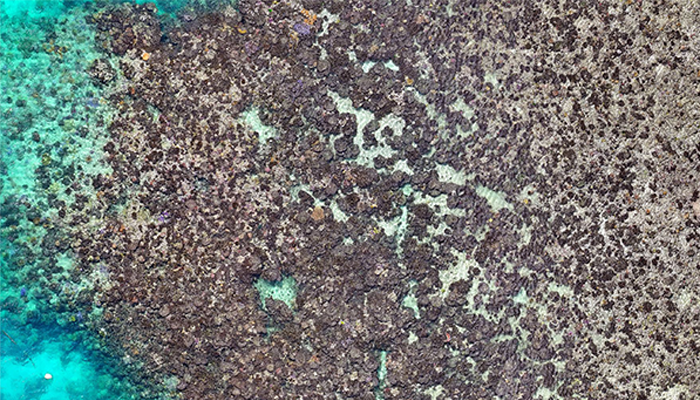New Research Reveals Alarming Coral Mortality Rates at Lizard Island
A recent study has uncovered shocking coral mortality rates of 92% following last year’s devastating bleaching event at Lizard Island on Australia’s Great Barrier Reef. This marks one of the highest coral mortality rates ever documented globally, highlighting the severe impact of climate change on our marine ecosystems.
The research team conducted an assessment of the Fourth Global Coral Bleaching Event, as declared by the National Oceanic and Atmospheric Administration (NOAA) in April 2024. This event led to extensive bleaching and mortality across the reef system, causing irreparable damage to the delicate coral reefs.
Published in Coral Reefs, the study utilized high-resolution drone imagery to map coral bleaching in March 2024. Researchers then returned in June to evaluate survival and mortality rates across the same reef areas, providing valuable insights into the immediate aftermath of the bleaching event.
Professor Jane Williamson from the School of Natural Sciences at Macquarie University, who served as the senior author of the study, emphasized the significance of using drone technology to monitor coral bleaching and mortality. This innovative approach allowed researchers to assess the impact of the bleaching event over larger areas with high precision, revolutionizing our understanding of coral reef dynamics.
The research team, led by Dr. Vincent Raoult from Griffith University’s School of Environment, collaborated with experts from Macquarie University, James Cook University, the CSIRO, and GeoNadir to analyze 20 sections of the northern and southern reefs at Lizard Island. The results revealed an average bleaching mortality rate of 92%, with bleaching affecting an average of 96% of living corals in the surveyed areas.
Utilizing DJI Mini 3 Pro and Autel Evo II drones for data collection, the researchers verified their findings through in-water observations during June 2024. The use of advanced drone technology has allowed for more efficient and accurate monitoring of coral reef health, enabling scientists to track changes in real-time.
The coral reefs at Lizard Island have endured multiple disturbances over the past decade, including severe bleaching events in 2016 and 2017, cyclones, and outbreaks of Crown-of-Thorns starfish. These cumulative stressors have significantly impacted the resilience of the ecosystem, highlighting the urgent need for conservation efforts to protect these vital marine habitats.
Despite the challenges faced by coral reefs at Lizard Island, there are signs of recovery in recent years, offering hope for the future of these iconic ecosystems. Continued research and conservation efforts are essential to safeguarding the biodiversity and ecological integrity of the Great Barrier Reef and other vulnerable marine environments.

